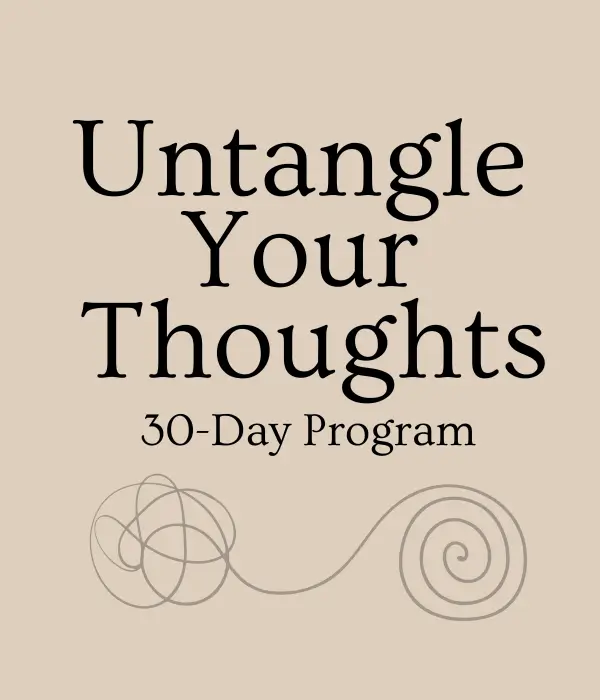Table of Contents
Have you ever found yourself going out of your way to keep someone happy, even when it’s draining or hurting you? Maybe you’ve felt like the only way to avoid conflict or tension is to cater to someone else’s emotions, especially if they’re emotionally abusive. If this sounds familiar, you’re not alone. This behavior is often tied to something called the “fawn response.” It’s one of the four ways our bodies react to stress—fight, flight, freeze, and fawn—and it’s all about people-pleasing as a way to stay safe or avoid more harm.
I am a Christian mental health coach and trauma-informed coach, so I will include biblical and clinical perspectives in this post.
What is the Fawn Response
Let’s break it down. The fawn response might look like always apologizing, agreeing to things you don’t want to do, or constantly putting someone else’s needs above your own. For example, maybe your partner criticizes you for a decision you made, and instead of standing your ground or explaining your perspective, you backtrack, apologize, or try to smooth things over to calm them down.
Over time, this pattern teaches your brain that their needs matter more than yours and that keeping the peace is the only way to survive the relationship.
The fawn response in simpler terms:
- Definition: Fawning involves people-pleasing behaviors to avoid conflict, reduce tension, or prevent further emotional harm.
- Examples: Constantly apologizing, over-accommodating the abuser’s needs, avoiding expressing personal desires, or agreeing with them to keep the peace.
- Root Causes: Often stems from fear of abandonment, past trauma, low self-worth, or a learned coping mechanism from previous unhealthy relationships.
From a biblical perspective, the fawn response—where someone prioritizes others’ needs and emotions over their own to avoid conflict—can reflect a misunderstanding of what God calls us to in relationships. While the Bible encourages humility and serving others (Philippians 2:3-4), it does not call us to neglect our God-given worth or become enslaved to people-pleasing.
In fact, Proverbs 29:25 warns, “The fear of man lays a snare, but whoever trusts in the Lord is safe.” People-pleasing often stems from fear—fear of rejection, anger, or conflict—but God calls us to walk in freedom and truth, not in fear (2 Timothy 1:7).
Why The Fawn Response Happens
But here’s the thing: this behavior doesn’t come out of nowhere. It’s often rooted in deeper beliefs and fears. Maybe you’re afraid of what will happen if you don’t comply—like retaliation, anger, or rejection. Or maybe you grew up in an environment where you had to keep everyone happy to avoid criticism or punishment, so this became your “normal.” Thoughts like, “If I don’t keep them happy, everything will fall apart,” or “I’m selfish if I put myself first,” might feel so automatic that you don’t even realize they’re there.
The problem is that constantly putting someone else’s needs first can take a real toll on you. It can leave you feeling exhausted, stuck, and unsure of who you even are anymore. It might even lead to things like anxiety, depression, or feeling like you’re walking on eggshells all the time. The good news? You don’t have to stay in this cycle. There are ways to break free and start building healthier dynamics.
Why the fawn response happens in simpler terms:
- Fear of Retaliation: The person may feel that standing up for themselves will result in worse abuse or punishment.
- Hope for Change: They might believe that catering to the abuser’s needs will make them less abusive or lead to peace.
- Survival Mechanism: This behavior can develop as a way to maintain a sense of safety in a toxic environment.
- Learned Behavior: Past experiences or childhood dynamics (e.g., being raised in a family with emotional abuse) might have taught them that keeping others happy is the only way to avoid harm.
What Are Signs of the Fawn Response
The fawn response can have a profound impact on an individual’s mental and emotional health. Constantly suppressing their own needs to keep someone else happy often leads to emotional burnout, leaving them feeling drained and resentful.
Over time, this behavior can erode their sense of identity, as they prioritize the emotions and demands of the other person over their own.
This cycle also diminishes self-worth, as they may begin to believe their value is tied solely to how well they serve or please others, rather than recognizing their inherent worth.
I see this a lot when working with my coaching client as a Christian mental health and trauma-informed coach. They will often tell me how they have difficulty saying no or feel themselves becoming someone else around specific people. When they transform into someone else (people-pleasing), they struggle to know who they are and find themselves drained when leaving those people because they exhausted themselves trying to keep the peace.
Impact of the fawn response in simpler terms:
- Emotional Burnout: Constantly suppressing their own needs leads to exhaustion and resentment.
- Loss of Identity: Prioritizing the abuser’s emotions over their own often results in losing a sense of self.
- Decreased Self-Worth: They may internalize the idea that their value comes only from serving or pleasing the other person.
Jesus provides the perfect example of balanced relationships. He served others with love and compassion but maintained clear boundaries. For example, He would withdraw to pray (Luke 5:16), spoke truth even when it was hard to hear (John 8:44-47), and did not cater to everyone’s demands (Mark 1:35-38).
His actions remind us that healthy relationships are rooted in love and truth, not fear or manipulation. Overcoming the fawn response involves trusting God for our safety and approval, rather than seeking it from people. By aligning with His truth, we can honor both Him and ourselves in the way we relate to others.
Examples of Fawn Behavior
The fawn response often shows up as excessive people-pleasing, where individuals go out of their way to avoid conflict or soothe others’ emotions, even at their own expense. This can include constantly apologizing, agreeing to things they don’t want to do, suppressing their feelings, or sacrificing their boundaries to keep the peace.
Over time, these patterns can lead to emotional exhaustion, resentment, and a loss of identity as their own needs and desires are repeatedly pushed aside. Recognizing these behaviors is the first step toward breaking free and reclaiming personal autonomy.
Here are examples of the fawn response (behavior):
- Excessive Apologizing: Saying sorry repeatedly, even for things that aren’t your fault, to avoid conflict or soothe the other person’s emotions. Example: “I’m sorry, I didn’t mean to upset you,” even when the issue wasn’t caused by you.
- Agreeing to Everything: Going along with someone’s opinions or demands, even when you disagree or feel uncomfortable, to avoid tension. Example: Nodding in agreement during a heated discussion just to keep the peace, even if you disagree internally.
- Avoiding Personal Preferences: Consistently putting someone else’s needs, desires, or preferences above your own to prevent upsetting them. Example: Letting them choose where to eat every time, even when you have a strong preference.
- Over-Compensating: Doing more than is necessary to appease someone or “make up” for their negative emotions. Example: Taking on extra tasks or responsibilities to make their life easier, even at the cost of your own time or energy.
From a biblical perspective, we are called to live in truth and love, not fear (2 Timothy 1:7). While serving others is a reflection of Christ’s heart, it should not come at the cost of denying our God-given worth or compromising healthy boundaries.
Jesus Himself set boundaries, spoke truth in love, and never compromised His identity to please others. If you find yourself stuck in people-pleasing or fawn behaviors, remember that God created you with purpose and value that doesn’t depend on the approval of others.
Walking in His truth means honoring both Him and the person He made you to be. Seek His guidance as you take steps to set boundaries and trust Him to lead you toward healthier, more life-giving relationships. You can heal your nervous system and the fawn response.
Begin Healing Your Nervous System Reaction
One way to begin is by challenging those automatic thoughts that keep you stuck. Think of it like this: it’s about catching the unhelpful thoughts, questioning them, and replacing them with healthier ones.
For example, if you’re thinking, “If I say no, they’ll get angry, and I can’t handle that,” ask yourself: “Is it true that I can’t handle their anger? What’s the worst that could happen? Have I managed difficult situations before?” Then, reframe that thought into something more empowering, like, “I can set a boundary calmly, and their reaction is their responsibility, not mine.” It takes practice, but you’re taking back your power every time you challenge those thoughts.
Another step is learning to set boundaries. I know, I know—boundaries can feel hard, especially if you’re not used to setting them. But you don’t have to start with big ones. Maybe you begin by saying no to something small or taking time to think before agreeing to a request. Boundaries aren’t about being mean; they’re about protecting your energy and valuing your needs. Boundaries help to protect and care for both people in the relationship. Remember that setting a boundary is not building a wall.
It’s also really important to rebuild your identity in Christ. When you’ve been in a dynamic like this, it’s easy to forget that you’re valuable just as you are.
If this all feels overwhelming, that’s okay, too. Healing doesn’t happen overnight, and it’s okay to take it one step at a time. You don’t have to do it alone, either. A therapist can help you untangle the deeper beliefs and trauma that might be keeping you in this cycle. There are also great resources online to help you learn about the fawn response and how to set boundaries in difficult relationships [insert link to resource].
For Christians, this dynamic can be particularly challenging. God calls us to be peacemakers, not peacekeepers. Peacekeeping often involves avoiding conflict at all costs, including tolerating abuse, while peacemaking involves addressing issues truthfully in love (Matthew 18:15). It’s important to remember that God desires healthy, loving relationships rooted in mutual respect and dignity.
Healing from the fawn response in simpler terms:
- Work with Me as Your Christian Mental Health or Trauma-Informed Coach
- I can help you the fawn response and how it relates to trauma and stress.
- I can help normalize your reaction as a survival mechanism while emphasizing that it’s no longer adaptive.
- Boundary Setting:
- Learn assertiveness skills to help express your needs and set boundaries effectively.
- Practice recognizing healthy versus unhealthy relationship dynamics.
- Cognitive Restructuring:
- Challenge and replace distorted beliefs, such as “I am only valuable if I please others” or “Conflict always leads to harm.”
- Emotion Regulation Skills:
- Learn grounding techniques and mindfulness practices to help manage the emotional toll of stepping out of the fawn response.
Most importantly, remember this: your needs and feelings matter because you matter to God. You weren’t made to live in constant fear or to keep sacrificing yourself just to keep the peace. You were made for relationships that are mutual, respectful, and life-giving. It might take time, but you can get there.





